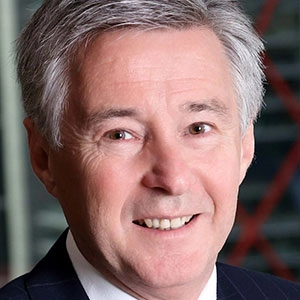ETFs are not the cause of market ills: Blackrock, BetaShares
Whether ETFs are to blame for returning market volatility was among topics traversed at the recent Morningstar Investment Conference 2018.
Exchange-traded products have undoubtedly been one of the fastest-growing sectors in financial markets over the last decade. Around 176 ETPs with a collective $36.3 billion market were listed on the Australian Securities Exchange as at 31 March, 2018.
The sector is accumulating assets at an extraordinary rate. New ETFs are being launched at an almost overwhelming pace, with varied labels including active, multifactor, fixed income, environmental and ESG.
At the Morningstar Investment Conference on 28 May 2018, Alex Prineas, Morningstar’s associate director of passive strategies, hosted an innovative session — Current Trends in ETFs. This brought together new perspectives and investment views on this rapidly expanding sector of the market.
Jonathan Howie, head of ETF product and strategy for iShares/Blackrock, the world’s largest ETF provider, and Alex Vynokur, chief executive officer of BetaShares, one of Australia’s fastest-growing ETF managers, provided insightful industry observations. The initial discussion centred on the buoyant growth of ETFs among investors.
Recent data showed the average age of a retail ETF investor fell from 58 to 45 years, as the understanding and popularity of the financial product grew, leading to a wider demographic group, according to iShares' Howie.
He also noted that while investors traditionally used ETFs access single asset classes, such as domestic or global equities, they have now investors expanded their use of ETFs into building an entire diversified portfolio, for tactical purposes, or as a low-cost component in a core and satellite portfolio.
Why use an ETF?
Low costs, simplicity, transparency, liquidity and control were the key benefits emphasised by both Howie and Vynokur. The discussion then ventured onto the issue of whether investors cared what the ETF used as a benchmark or whether price drove demand.
IShares Core S&P/ASX 200 ETF (ASX code: IOZ) uses the S&P/ASX 200 Accumulation Index and has a low management fee of 15 basis points per year, and its dominant size makes it highly liquid.
However, the recently launched BetaShares Australia 200 ETF (A200) uses the lesser-known Solactive Australia 200 Index and has a management fee of 7 basis points per year, placing it among the lowest-cost Australian shares ETFs available on the ASX.
Investors don't care for benchmarks
Betashares' Vynokur indicated that benchmarks were an important issue for institutional investors but less so for retail investors, who were often focused more heavily on price. Vynokur also discussed how ETFs were used by investors to mainly provide a core allocation, tactical exposure, or low-cost entry to an asset class, and that the meticulous details of specific benchmarks were often a secondary consideration.
The session also explored whether ETFs may be contributing to market bubbles and volatility. Both Howie and Vynokur firmly believe this is not the case, and anticipate that while an inevitable market downturn is inevitable, ETFs will not be the cause. Howie used the analogy of blaming shipping containers for any drop in global trade, with the products simply a delivery method or box for company shares, rather than an asset class.
Both presenters also noted that the popularity of ETFs has resulted in greater diversification by retail investors across asset classes, ranging from domestic equities to global equities, fixed interest, global property, and global infrastructure.
Numerous active ETPs are being launched each year, giving investors easy access and efficient exposure to often well-regarded, unlisted strategies across asset classes. However, these ETPs typically charge higher management fees than passive ETFs and may have wider bid-ask spreads.
Active management here to stay
Prineas noted that with active ETPs "you are giving up the traditional low-cost characteristic, with the expectation of outperformance by the manager.” Vynokur believes there is a large secular trend towards transparent, low-cost passive, and smart-beta ETFs and away from active investment management. But active is here to stay, so while there will be growth in active ETPs, it will be slower than passive and smart-beta ETFs.
Howie pointed out that in Canada, where regulation enforces transparency and clarity, the active ETP market is large and rapidly increasing. He contrasted this with the Australian market, where full transparency is not required by regulators, and suggested that it might be worth exploring the Canadian model. In Australia, investors sought transparency, but active managers preferred to protect their intellectual property and remain quite opaque.
More from Morningstar
• Make better investment decisions with Morningstar Premium | Free 4-week trial
Ross MacMillan is a senior manager research analyst at Morningstar Australia.
© 2018 Morningstar, Inc. All rights reserved. Neither Morningstar, its affiliates, nor the content providers guarantee the data or content contained herein to be accurate, complete or timely nor will they have any liability for its use or distribution. This information is to be used for personal, non-commercial purposes only. No reproduction is permitted without the prior written consent of Morningstar. Any general advice or 'class service' have been prepared by Morningstar Australasia Pty Ltd (ABN: 95 090 665 544, AFSL: 240892), or its Authorised Representatives, and/or Morningstar Research Ltd, subsidiaries of Morningstar, Inc, without reference to your objectives, financial situation or needs. Please refer to our Financial Services Guide (FSG) for more information at www.morningstar.com.au/s/fsg.pdf. Our publications, ratings and products should be viewed as an additional investment resource, not as your sole source of information. Past performance does not necessarily indicate a financial product's future performance. To obtain advice tailored to your situation, contact a licensed financial adviser. Some material is copyright and published under licence from ASX Operations Pty Ltd ACN 004 523 782 ("ASXO"). The article is current as at date of publication.


